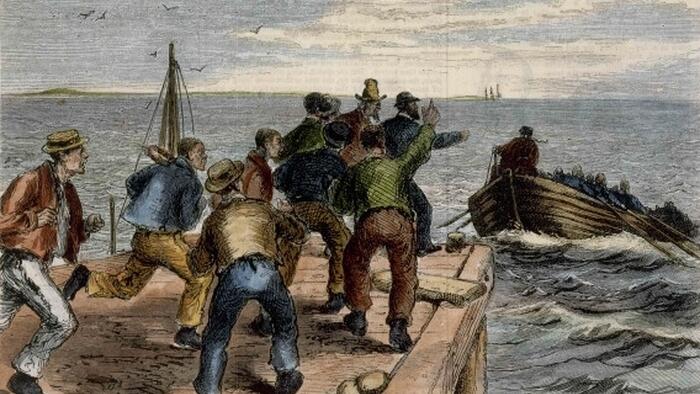Australia is moving forward with a controversial plan to resettle foreign-born criminals on the small Pacific island of Nauru. This decision comes after a ruling by the High Court of Australia, which found that non-citizens without viable resettlement options outside of the country must be released. The new policy aims to address the challenges of deporting individuals who have engaged in criminal conduct but cannot be returned to their home countries due to safety concerns or refusal by those countries to accept them.
The historical context of this decision is striking. It has been 157 years since the last convict ship from the United Kingdom arrived in Australia. Between 1788 and the early 19th century, English courts frequently sentenced convicts to “transportation” to Australia, where they would serve their sentences as laborers in the then-British colony. The practice often involved keeping prisoners in dilapidated ships known as “hulks” on the Thames River until they could be transported. The phrase issued by judges, “the sentence of the court upon you is, that you be transported beyond the seas for the term of your natural life,” became notorious in British legal history. Historian K. S. Inglis noted that the founders of Australia were not a “chosen people” but rather those selected by the “best judges in England.”
Australia’s latest strategy diverges from the historical use of convicts for labor. Instead, it seeks to manage individuals who are deemed unfit for indefinite imprisonment but pose a risk to the community. The High Court’s ruling highlighted that some countries, such as Afghanistan, are considered unsafe for repatriation, while others, like Iran, refuse to accept involuntary deportees.
One notable case involved an individual referred to as NZYQ, who traveled from Myanmar through a smuggler. After being released into the Australian community, he committed serious crimes, including the sexual assault of a minor. Following his imprisonment, authorities held him until the court mandated his release, raising serious questions about community safety and the efficacy of the current immigration system.
In response to these challenges, the Australian government is reportedly drafting legislation that would alter the deportation process. The proposed changes aim to strip certain rights from individuals undergoing deportation proceedings and would negate visas that are currently under appeal. This policy shift reflects a growing frustration with an immigration system that critics argue allows individuals to exploit legal loopholes for extended periods.
The implications of this decision resonate beyond Australia. Similar challenges are being faced in the United States, where the immigration system has been criticized for its inefficiencies. With millions entering the country during the Biden Administration, there is a pressing need for Congress to reform processes to facilitate expedited removals.
As Australia grapples with its historical legacy and current legal challenges, the decision to resettle individuals on Nauru is a significant step that raises complex ethical and practical questions about immigration and public safety. The outcome of these developments will be closely watched, both domestically and internationally, as countries navigate the intricate balance of human rights, legal obligations, and community safety.








































































